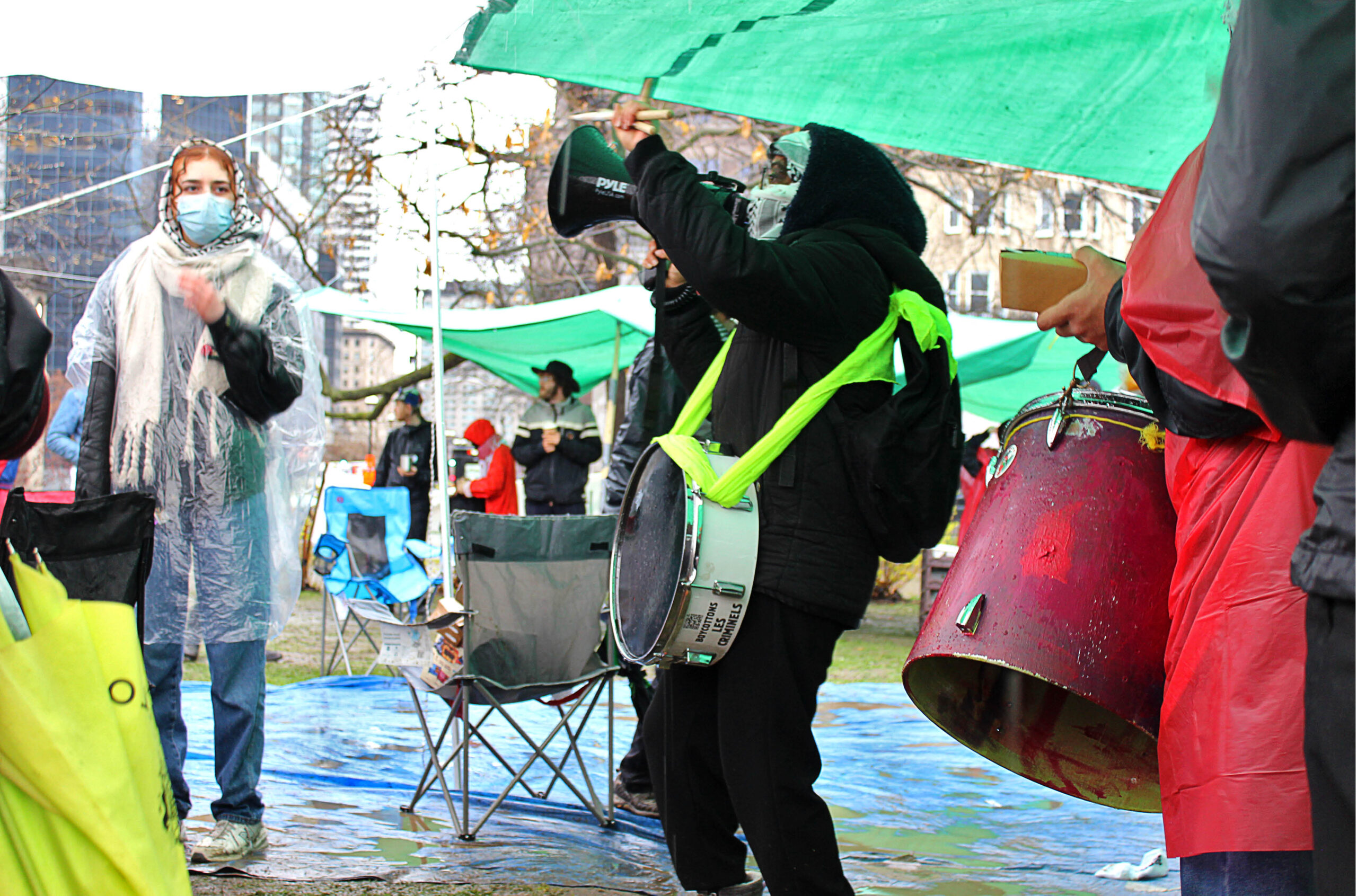In defense of late papers
While we want to instil discipline and responsibility in our students, there is also pedagogical value in compassion.

It’s that time of year again, when panicked students start asking for extensions. They will send desperate emails and come knocking with trepidation on our office doors. They will arrive with excuses and cite extenuating circumstances, and faculty far and wide will have to make tough decisions about whether or not to accept late work.
Most professors find this ritual frustrating. We want to enforce the rules and maintain high standards, but how are we to stand fast against this tidal wave of human drama? One student is recovering from the flu, another has been struggling with panic attacks. A senior student writing his thesis is going through an existential crisis, and a bright first year student hasn’t been able to concentrate since learning that her mother was diagnosed with cancer. Every year, the high-minded rules and regulations laid out in our syllabi are tested by the sheer plurality of the student experience.
At the risk of seeming “soft,” I want to make a case here for academic mercy. Professors can’t grant every extension request, that is clear. But, when confronted by overwhelmed students, we should not be ashamed to lighten their burdens. While we want to instil discipline and responsibility in our students, there is also pedagogical value in compassion.
Many professors will find this idea laughable. Haven’t millennial students already been coddled enough? What they really need to learn is resilience! That may be true. Though it also seems like the sort of thing older people are always saying about younger people – too lazy, no work-ethic, etc. Nevertheless, I think as professors we can be too fixated on punctuality. Our reasons for upholding unalterable deadlines aren’t even very good.
The most common argument deployed by deadline hardliners is that students need to prepare themselves for the “real world,” where – reputedly – all deadlines are non-negotiable, and every professional commitment is rigid and inflexible. In truth, any working professional will tell you that meetings and presentations get rescheduled all the time.
Organizational objectives change and new opportunities arise unexpectedly. Of course, in some fields, like law and journalism, deadlines are more strict. But, if we are honest, the most we can say is that some deadlines in the working world are non-negotiable, while many other deadlines are fluid.
Nowhere is this more true than in academia. Every professor I know asks for extensions from publishers, editors and conference organizers. Academic writers are routinely late with their own work. We fall behind in our marking. We forget to respond to emails from students and administrators. We cancel class when we are sick. Are we being hypocritical, then, when we refuse to grant students the same consideration we expect for ourselves?
Fairness, of course, is the other principle most often cited in defense of immovable deadlines. We need to measure everyone by the same standard: equality before the law. But equity is also an element of justice. The student who is able to meet every deadline may live at home with two parents who cook her meals and drive her to campus; she may have a scholarship that covers the costs of her education and pays for her books. Another student in the same course might be a single parent, whose support network lives in another city. In addition to her course load, she may have to work a full-time job to pay for rent, child care and tuition. If I assign these two students an essay, due in three weeks, can we honestly say that they both have the same amount of time to write the paper?
Perhaps drawing lines in the sand and refusing to accept late work teaches students a lesson about time management. Maybe they learn that rules are rules, and that the world doesn’t revolve around them. I suggest, however, that there may be other lessons worth teaching.
We should remember that our students learn something by observing our conduct. It is good, no doubt, to model preparedness, and discipline, and consistency. But I also hope that my students learn to be charitable and to show forgiveness. There will likely come a day when they are in positions of authority and have to decide how to treat people who have been battered by misfortune or who have made bad choices. When they are confronted with a choice between adhering to policy and helping a person, I guess I hope they prioritize the person.
I am not advocating the abolition of deadlines. They’re useful, they help students and faculty organize their time, and they encourage us to distribute our workload over the course of the term. They are part of our pedagogical toolbox. What I am advocating for is a sort of professorial grace. When it is within our power to extend a deadline on compassionate grounds, I think we ought in incline towards kindness and understanding.
Andrew Moore is an associate professor and director of the Great Books program at St. Thomas University. He is the author of Shakespeare between Machiavelli and Hobbes.
Featured Jobs
- Canada Excellence Research Chair in Forest Biodiversity Conservation (Full Professor)University of New Brunswick
- Canada Excellence Research Chair in Energy TransitionsUniversité du Québec à Trois-Rivières (UQTR)
- Canadian Politics - Assistant ProfessorUniversity of Toronto
- Education - Assistant Professor (Distance Education)University of Toronto
- Business – Lecturer or Assistant Professor, 2-year term (Strategic Management) McMaster University













Post a comment
University Affairs moderates all comments according to the following guidelines. If approved, comments generally appear within one business day. We may republish particularly insightful remarks in our print edition or elsewhere.
12 Comments
Most universities have accommodation policies that take some of the stress off professors. It’s wise to know the policies inside out, and also to have friends in the access/accommodation and counselling offices with whom you can work to devise solutions. “Compassionate grounds” was usually where the most professorial discretion could be exercised.
I found that in the great majority of cases students in distress were honest about it and the causes had little to do with academic capability, poor time management etc. I retired in 2015 but what I hear from still-active colleagues suggests that student anxiety levels continue to rise. There will always be scammers but in today’s world there are strong arguments for cutting students some slack.
I agree, and would add that there is considerably more to be gained by keeping students in the game than showing them the door. Having taught for about four decades, I can honestly say that the track record here is positive, and many students have benefited from extensions and completed good and sound degrees. (Some of them have even gone on the become card-carrying PhDs with great CVs at good universities!) There is no gain or virtue in discarding talent, or depriving someone of a chance to demonstrate it. As for the value of deadline discipline: it seems a particularly small-minded virtue with meagre dividends. Most everyone I know is behind and overextended – none of which prevents them from being important contributors to their field. Weighed against that, getting everything in on time is small consolation if the work isn’t good to begin with.
As a student who struggled with deadlines my entire life, and someone who had to work full time by way of two or three part time jobs while attending university, I applaud your kind and benevolent attitude. It took me over ten years to finish my undergraduate degree, but I went on to complete two more programs, including a very challenging MA. It not for the kindness of my profs, I would never have completed anything. I now work in higher education and I regularly deal with struggling students. I never forget that they have complex lives and personal issues that loom larger than their assignments. Kindness is everything.
I completely disagree.
I worked full time while in university full time and managing a disability. Learning to manage my time was the best skill I learned during those years.
Now, I am one of those professors you’ve never met, apparently, who always meets a deadline (always.), and has never once asked for an extension.
We ARE coddling students too much, and the result is a workforce that is far too coddled as well, including faculty themselves who can’t get work in on time.
It’s disingenuous and unfair to students who struggle hard to get their work in on time if you allow extensions too easily.
Most workplaces won’t give a damn if you have the flu, if your mother died, or if you’re stressed out or anxious. University is the safest place for students to learn the rules of the real world. It’s harsh and the sooner they get a handle on it the better.
I detect a large chip on someone’s shoulder, along with a whiff of self-righteousness. But in Canada there are such things as labour laws, employment standards, collective agreements and – yes – human and humane employers. (There are also robust accommodation policies at most universities too.) The students who finish on (or before) the due date have more time available for the next paper, recreation, or looking after an ailing parent. As for getting everything in on time (or not), that has precious little to do with the value of the work (now or in a decade). So it’s fine to feel good about that, and even to expect a pat on the back, but don’t insist that everyone else has to feel quite the way you do.
“As for getting everything in on time (or not), that has precious little to do with the value of the work (now or in a decade)”
Spoken like a true academic! There are many, many time-sensitive deadlines in this world and punctuality and timeliness is certainly a value of all work.
Raise a generation as casey suggests and you will have hard-working, dependable, strong individuals. Raise a generation as you and the author seem to suggest, and you will have self-entitled conformists who only get fired up when society actually expects something of them.
I completely agree casey. I shudder to think what this cultivated sense of entitlement and over-coddling is going to do to the next generation and the one after. Hopefully there will be a push against it, but how can someone reared in such an environment regain their survival instinct, fight, and eschew a free lunch for something earned through hard work? We are creating a society of soft people.
Imagine farmers taking this approach to their work: the field is ready for harvest, but I need to take a mental health day and a late harvest is just as good as a punctual one.
I am in favour of sensitivity to be sure. Health issues, etc… Absolutely.
But what about fairness in the other direction? Fairness to the person grading the paper who’s certainly on contract (and therefore has a tight deadline or doesn’t get paid) to get final grades in.
What about fairness to those students who DID get their work in on time? As a student who held down 2 jobs, was married, had 2 kids etc….and never asked for an extension it used to drive me insane that it was the same students asking for extensions in every course. They were not any busier than I was. And maybe I do have a chip on my shoulder but that doesn’t mean my feelings aren’t valid. As an instructor I see the same pattern 20 years later.
And do we honestly think that these students handing in late assignments are NOT looking at already graded papers? This gives them a double advantage – more time and more information.
Academics who can’t manage their time effectively are a huge problem to departments. They inconvenience their peers, publishers, and the students they are supervising. The solution is certainly not to excuse students’ lateness and so reinforce the bad habits they are just forming, all on the basis that “Academic writers are routinely late with their own work.” We need to nip this problem in the bud by teaching effective time management to the next generation of academics.
Just kidding, there will be no next generation, just an mercenary army of sessional and adjuncts all vying for courses by day and a spot in the soup kitchen line by night.
Why should students be held to different standards than what will be expected of them when they graduate? Let’s extrapolate this approach to everyday life:
In defense of late doctor appointments.
In defense of late contractors.
In defense of late meetings.
In defense of late, cold food at the restaurant.
You get the point.
“Academic writers are routinely late with their own work.”
Yes, and I actively avoid collaborating with people who are routinely late and do not respect deadlines. Life happens and we are all generally sensitive to peoples’ issues, but being a delicate genius is not an excuse for missing deadlines.
The trouble with the arguments presented in this article is that they are cherrypicked to support the desired conclusion. For example, on the issue of fairness, the author suggests that students who can hand things in on time must be more privileged than those who might need an extension. Sure, that happens. Nevertheless, there are likely times when the students who hand things in by the deadline do so because they made sacrifices…or good decisions (e.g., go to party versus work on homework)…or just used self-discipline and simple time-management. Of course, there are times when exceptions are warranted, but those should entail exceptional circumstances. The most insidious error, however, is that the author confuses compassion with enabling. Kicking the problem down the road is not compassionate, it is neglectful. When else will that overwhelmed student learn self-discipline, responsibility, and time-management skills, where the stakes are relatively low (getting a low grade on an assignment rather than losing one’s job) and while still being protected by the safety-net in the form of a concerned teacher who can provide guidance on how to avoid or minimize these undesirable incidents? Finally, the author needs to meet more faculty members. I am confident that the vast majority of successful professionals meet their deadlines…unless there is a very good reason that they cannot.